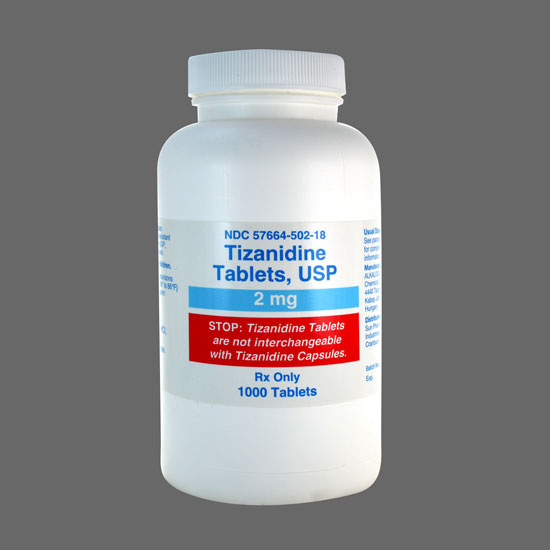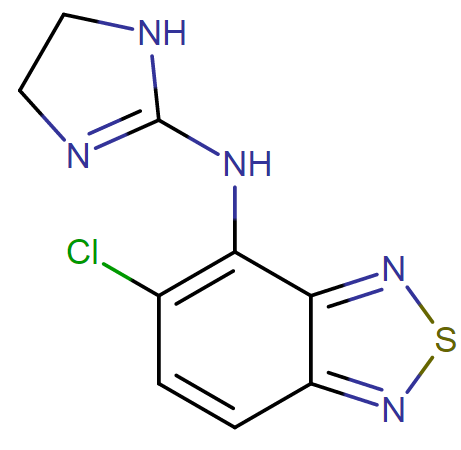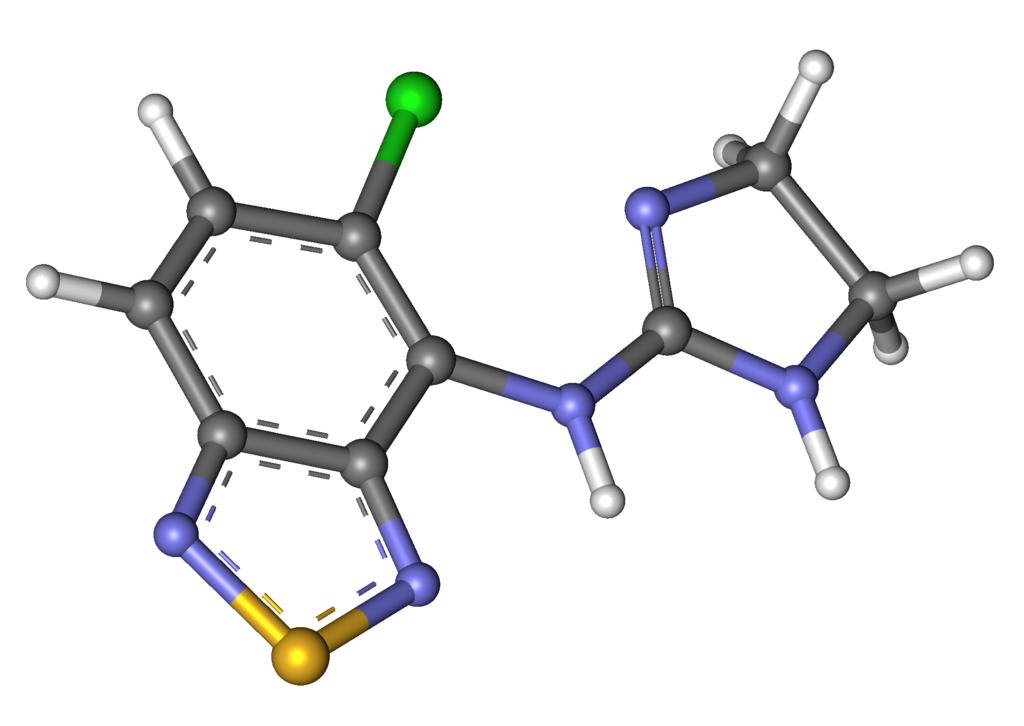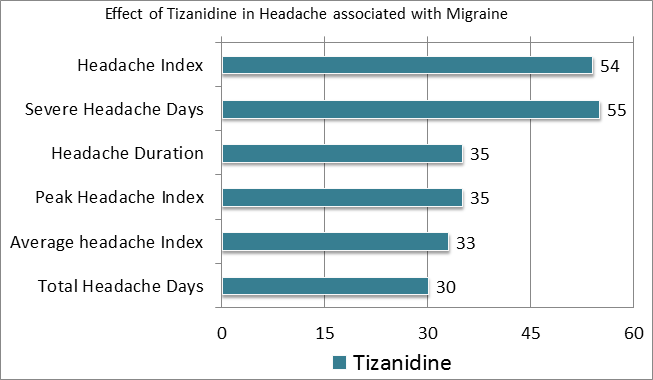Contents
- What is Tizanidine?
- Tizanidine molecular formula, weight and drug class
- How Tizanidine works in the body?
- Tizanidine Brand Names
- What are FDA approved indications for Tizanidine?
- How Do Tizanidine capsules and tablets look like?
- What is the highest dose of Tizanidine?
- Tizanidine side effects
- What are some effects and symptoms of Tizanidine Overdose
- How should I take Tizanidine?
- Does Tizanidine cause hypotension?
- Does Tizanidine cause Hallucinosis / Psychosis – like syndrome?
- Does Tizanidine cause liver Injury?
- Does Tizanidine cause skin reactions?
- Does Tizanidine cause sedation?
- Can I get “high” on Tizanidine?
- Can I abrupt Tizanidine therapy suddenly?
- Can Tizanidine cause withdrawal effects?
- Precuations and warnings during Tizanidine use
- How long does Tizanidine works?
- Is Tizanidine safe during pregnancy?
- Can I take Tizanidine during breastfeeding?
- Can patients with renal disease take Tizanidine safely?
- Can patients with liver diseases take Tizanidine safely?
- Tizanidine absorption, metabolism and elimination
- Tizanidine for multiple sclerosis
- Tizanidine for ALS
- Tizanidine for Back Pain
- Tizanidine for migraines
- Can I drink Alcohol while taking Tizanidine?
- Can I take Tizanidine as a Sleep Aid?
- Can I take Tizanidine and Amiodarone together?
- Can I take Tizanidine and verapamil together?
- Can I take Tizanidine and famotidine together?
- Can I take Tizanidine with Oral contraceptives
- Can I take Tizanidine with Acyclovir?
- Can I take Tizanidine and SSRIs or fluvoxamine together?
- Can I take Tizanidine with fluoroquinolone antibiotics together?
- Can I take Tizanidine with Ibuprofen?
- Can I take Tizanidine with Ambien?
What is Tizanidine?
Tizanidine is a short acting muscle relaxer that relieves cramping, spasms and tightening of muscles caused by spinal injuries or multiple sclerosis. It works by blocking nerve impulses (pain sensations) that are sent to your brain.
Tizanidine is available in the form of 4mg tablets or capsules in the form of 2mg, 4mg or 6 mg for oral administration. This medicine is available only with doctor’s prescription. Common brand names for Tizanidine are Zanaflex, Sirdalud and Relentus.
Tizanidine molecular formula, weight and drug class
Chemical name:
5-chloro-N-(4,5-dihydro-1H-imidazol-2-yl)-2,1,3-benzothiadiazol-4-amine monohydrochloride
Molecular formula:
C9H8CIN5S•HCl
Weight: 253.708 g/mol
Drug Class:
This compound belongs to the class of organic compounds known as benzothiadiazoles. These are heterocyclic aromatic compounds containing a benzene ring fused to a thiadiazole ring. Thiadiazole is a five-membered aromatic heterocycle made up of one sulfur atom and two nitrogen atoms. Tizanidine comes under the class of adrenergic alpha-2 Receptor Agonists
How Tizanidine works in the body?
- Tizanidine is central acting myotonolytic agent
- It acts by showing agonistic activity at noradrenergic alpha 2 receptors, where it impairs release of amino acid from interneurons
- In addition, shows inhibition of facilitatory spinal pathways
- Which results into inhibition of interneuronal activity (alpha 2 receptors mediated) and reduction in pain sensations, thereby shows anticonvulsant and antinociceptive activity.
- In short, Tizanidine acts by blocking nerve impulses (pain sensations) that are sent to your brain and provides symptomatic relief in muscle spasms, cramping and tightness of muscles.
- Tizanidine, being a muscle relaxant, possess mild and transitory activities.
Tizanidine Brand Names
Tizanidine is available on the market under following Brand names: Zanaflex, Sirdalud and Relentus.
What are FDA approved indications for Tizanidine?
Tizanidine is indicated for the treatment of spasticity caused by Multiple sclerosis, acquired brain injury or spinal cord injury, ALS (Amyotrophic lateral sclerosis) and spastic diplegia. It can also be given to the patients suffering from chronic neck pain or lower back pain who have a myofascial component to their pain. Tizanidine is also prescribed off-label for migraine attacks.
How Do Tizanidine capsules and tablets look like?
Capsules:
- Tizanidine hard gelatin orange coloured capsule of 2 mg capsule (body + cap) filled with light yellow to yellow granular powder. The capsule is axially printed with MYLAN over TE 2 in black ink on both the cap and the body.
- Tizanidine hard gelatin orange coloured capsule of 4 mg capsule (body + cap) filled with light yellow to yellow granular powder. The capsule is axially printed with MYLAN over TE 4 in black ink on both the cap and the body.
- Tizanidine hard gelatin orange coloured capsule of 6 mg capsule (body + cap) filled with light yellow to yellow granular powder. The capsule is axially printed with MYLAN over TE 6 in black ink on both the cap and the body.
Tablets:
- Tizanidine 2 mg tablets are white to off-white, scored tablets, imprinted “APO” over “TI-2” and plain with a bisect score on other side.
- Tizanidine 4 mg tablets are white to off-white, scored tablets, imprinted “APO” over “TI-4” and plain with a quadrisect score on other side.
What is the highest dose of Tizanidine?
The highest daily dose of Tizanidine is 36 mg which should be taken in 3 divided doses, each of 12 mg over the period of 24 hours in case of muscle spasms. In addition, maximum single dose should not be more than 16 mg.
Tizanidine side effects
- Dry mouth (48%)
- Somnolence (48%)
- Dizziness (18%)
- Asthenia (10-45%)
- Blurred vision (3%)
- Constipation (4%)
- Infection (6%)
- LFT abnormalities (3-5%)
- Speech disorder (3%)
- Vomiting (3%)
- Urinary frequency (3%)
- UTI (10%)
- Bradycardia (frequency not defined)
- Hypotension (frequency not defined)
What are some effects and symptoms of Tizanidine Overdose
Effects of Tizanidine overdose are usually consistent with its known pharmacology. It shows:
- A decrease in sensorium including lethargy, somnolence, confusion and coma
- Depressed cardiac function including most often bradycardia and hypotension
- Respiratory depression
Seek emergency help immediately in case of following symptoms of Tizanidine overdose:
- Dizziness, faintness
- Blurred vision
- Change in consciousness
- Shallow breathing
- Irregular heartbeat
- Decreased responsiveness
- Unusual drowsiness
- Sweating
- Unusual fatigue
- Chest pain or discomfort
How should I take Tizanidine?
One should begin the treatment with single dose of 4 mg and increase the dose gradually (2 mg to 4 mg) to optimum effect that is satisfactory reduction of muscle tone at a tolerated dose. The dose can be repeated after 6 to 8 hours and there should be maximum 3 doses in 24 hours, taking too much of this medication is harmful for your liver.
Take this medicine with full glass of water. Follow your doctor’s instructions carefully about taking this medicine with or without food, because taking tizanidine tablets with food can increase its level in your blood stream whereas taking tizanidine capsules can decrease the level of the tizanidine in blood stream.
In fasting condition:
After oral administration, Tizanidine reach its peak plasma concentration in 1 hour, will show maximum effect in 1 hour post dose.
In fed conditions:
When administered with food: the peak plasma concentration was increased by 30% and shows its maximum effect in 1 hour 25 minutes post dose.
Once the formulation has been decided to take with food or not, it cannot be changed because food has complex effects on Tizanidine pharmacokinetics, which differ in different formulations. Tizanidine capsules and Tizanidine tablets have same effects in fasting conditions but both formulations have different effects in fed conditions.
Switching the administration in fed or fasting state and switching the administration of tablet or capsule form may result in increased adverse effects.
Does Tizanidine cause hypotension?
Being an alpha-2 adrenergic agonist, tizanidine can cause hypotension that can be minimize by proper titration of the dose. Though hypotensive effect is dose related, yet patients moving from supine to upright position are at increased risk of hypotension and orthostatic effects.
Tizanidine should be used in caution with patients receiving antihypertensive therapy, diuretics and avoid using other alpha-2 adrenergic agonists (eg. clonidine). Concomitant use of tizanidine (single dose of 4mg) with fluoxamine or ciprofloxacin is contraindicated because it can cause significant hypotension.
Does Tizanidine cause Hallucinosis / Psychosis – like syndrome?
When treated with Tizanidine, hallucinations / delusions have been reported in 3% of population that undergone treatment with Tizanidine. Psychosis along with hallucinations also developed in one patient. Tizanidine should be stopped in patients who developed hallucinations.
Does Tizanidine cause liver Injury?
Tizanidine should be used with extra caution in patients with hepatic impairment. Tizanidine may cause heptocellular injury along with nausea, vomiting, anorexia and jaundice in patients with elevated aminotransferase concentrations.
Therefore, serum aminotransferase levels should be monitored for first 6 months of treatment and thereafter based on clinical status of patient. Drug discontinuance can rapidly resolves the symptoms without any residual problems.
Does Tizanidine cause skin reactions?
Tizanidine can cause Itchy skin, skin rash, yellowing of skin or eyes (associated with jaundice). Call your doctor immediately if you seek any of these symptoms after taking Tizanidine.
Does Tizanidine cause sedation?
Along with other CNS depressants (benzodiazepines, opioids or tricyclic antidepressant) Tizanidine may cause excessive sedation, which may interfere with everyday activity. The patients should be monitored who take Tizanidine with other CNS antidepressant for symptoms of excess sedation.
Can I get “high” on Tizanidine?
Tizanidine is a potent muscle relaxant and acts by relaxing muscles cramps, excessive reflexes and sciatica associated with multiple sclerosis. One should not get very “high” on Tizanidine because taking the medication in excess dose or in more dose than prescribed by doctor can lead to drug addiction.
Tizanidine comes in a tablet form, and its abuse involves the crushing of tablet into a fine power form and snoring it through the nose or by dissolving the tablet powder into water and administer it intravenously. Tizanidine abuse is not commonly carried out by most of people but sometimes people use to abuse the drug to achieve desired results quickly and to get relief from pain sensations quickly.
Tizanidine abuse worsen with time as a physical dependency, and it should be treated timely to avoid severe side effects. One can get treatment by:
- Wearing off the drug slowly and reduce the dose of Tizandine slowly instead to stopping at once.
- One should monitor patient carefully to prevent withdrawal symptoms that usually appears after stoppage of Tizanidine.
Can I abrupt Tizanidine therapy suddenly?
Sudden abrupt of Tizanidine therapy may increase the risk of withdrawal symptoms, which include hypertension, tachycardia, tremor, hypertonia and anxiety. Withdrawal symptoms are more prominent in case of higher doses or with concomitant use of narcotics. The dose should be reduced gradually to minimize the withdrawal symptoms.
Can Tizanidine cause withdrawal effects?
Tizanidine is typically similar to clonidine, which is also a CNS depressant and sometimes it is used in combination with narcotics and known to produce withdrawal symptoms. Some withdrawal symptoms associated with stoppage of higher Tizanidine doses are:
- Tachycardia
- Hypertension
- Hypertonia
- Tremor
- Anxiety
Precuations and warnings during Tizanidine use
- Do not take Tizanidine with fluoxamine or ciprofloxacin and other potent inhibitors of CYP1A2, it may cause significant hypotension.
- Do not drive or work on heavy machines that may be dangerous after taking Tizanidine as it may cause dizziness or drowsiness. It may prove additive when taken with alcohol or other CNS depressants.
- Talk to your doctor if you have any liver disease as Tizanidine may cause hepatocellular liver injury. Aminotransferase levels monitoring is recommended.
- Tizanidine can cause severe allergic reactions and anaphylaxis. You should discontinue its use and seek medical help immediately in case of appearance of any of such symptoms.
- Your doctor needs to reduce the dose of Tizanidine, if you have any kidney disease, because higher dose can increase the severity of adverse effects (dry mouth, dizziness, asthenia and somnolence)
- Tizanidine needs to stop gradually to minimize the risk of withdrawal symptoms, so ask your doctor for reducing the dose of this medicine before stopping it completely.
- Effects of Tizanidine may last much longer in older patients.
How long does Tizanidine works?
Tizanidine shows half life of approximately 2.5 hours and shows volume of distribution is 33% and Tizanidine in a dose of 1 to 20 mg shows linear pharmacokinetics.
Is Tizanidine safe during pregnancy?
Tizanidine is a Category C pregnancy drug, which means research in animals shown adverse effects such as increased gestation period, developmental retardation, increased post-implantation loss. Therefore, it should be given to pregnant women only if the benefit outweighs the risk of foetus. Reproduction studies in various animals show some adverse effects.
So, make sure your doctor, if you are pregnant before taking this medicine.
Can I take Tizanidine during breastfeeding?
Tizanidine should be used with caution in nursing women, because It is a lipid soluble drug and it can be passed into the breast milk. Still the safety has not been established. If it is given to nursing women, moniter infant for toxicity such as sedation, hypotension and hallucinations.
Can patients with renal disease take Tizanidine safely?
In patients with renal disease or renal insufficiency, the individual doses should be reduced because the adverse effects can increased in patients with renal impairment function.
The patient should be monitored closely for increase in adverse effects such as dry mouth, somnolence, asthenia and dizziness, because the clearance was reduced by more than 50% in patients with renal insufficiency. In addition, it is very important to inform your doctor if you have experienced kidney failure.
Can patients with liver diseases take Tizanidine safely?
Tizanidine is extensively metabolized in liver therefore improper liver function or hepatic impairment expected to have significant effects on pharmacokinetics of Tizanidine.
Tizanidine absorption, metabolism and elimination
Absorption:
Tizanidine is completely absorbed by oral administration. Tizanidine undergoes first-pass hepatic metabolism therefore, it shows absolute oral bioavailability (approx 40%) and peak plasma concentration in anout 1 hour. Dosage forms of Tizanidine i.e. Tablets and capsules are bioequivalent to each other in fasting conditions but not under nonfasting conditions.
Distribution:
Tizanidine is approximately 30% bound to plasma proteins. And volume of distribution 2.4 L/Kg.
Metabolism:
Approximately 95% of an administered dose is metabolized. The half-life of Tizanidine is 2.5 hours, it is metabolized by the enzyme cytochrome P4501A2, and its metabolites are known to be active, their half lives ranges from 20 to 40 hours.
Elimination:
Tizanidine is recovered in urine (60%) and feces (20%).
Tizanidine for multiple sclerosis
Tizanidine is highly beneficial in treating muscle spasms, weakness, numbness, loss of muscle coordination and problems with vision associated with multiple sclerosis.
In clinical data, Tizanidine presented to reduce spasticity, hyperactive muscle stretch reflexes, ankle clonus and hyperreflexia in patients with multiple sclerosis, where as there were no significant changes noted in functional status of patient.
Tizanidine for ALS
ALS (amlotrpoic lateral sclerosis) mainly associated with excessive stiffness, overactive reflexes, clonus (extended spasticity mainly in ankle, biceps and triceps).
Tizanidine, worldwide accepted as best anti-spasmodic, its dosage can be range from 2-10 mg for ALS. Tizanidine is highly superior to Baclofen due to absence of severe side effects associated with baclofen. But, Tizandine may interect with alcohol and oral contraceptives and may cause hypotension when administered along with diuretics.
Tizanidine for Back Pain
Tizanidine with Ibuprofen is highly recommended for treatment of back pain and it is more advantageous than Ibuprofen alone. A dose of Tizanidine (4 mg) + Ibuprofen (400 mg) three times daily is superior than Ibuprofen 400 mg alone because:
- Tizanidine (4mg) + Ibuprofen (400 mg) provides more relief in patients with moderate and severe pain at night and in patients with more sciatica
- Tizanidine (4mg) + Ibuprofen (400 mg) produce less gastro-intestinal side effects as compared to Ibuprofen (400mg) alone because Tizanidine facilitates gastric mucosal protection activity against anti-inflammatory agents.
- Patients treated with Tizanidine (4mg) + Ibuprofen (400 mg) suffered from drowsiness and sleepiness, which is also advantageous in patients with low back pain.
Tizanidine for migraines
Tizanidine is an effective therapy for chronic daily headaches, migrainous headache and tension type headache. Tizanidine effectiveness in severe headaches as compared to placebo is shown here in graph:
Can I drink Alcohol while taking Tizanidine?
You should not take alcohol with Tizanidine because alcohol, being a CNS depressant agent can exhibit hypotensive effects and it may prove additive during coadministration. Tizanidine reduces the blood pressure (systolic and diastolic) in a single dose of 8mg and reduction is peaked in 2-3 hours after dosing.
Some side effects include bradycardia, hypotension, lightheadness and dizziness which can be increased with administration of alcohol. Moreover when alcohol increases the overall amount of drug in the bloodstream and increases the hypotensive effects.
Can I take Tizanidine as a Sleep Aid?
Tizanidine 4mg tablet can be taken as a sleep aid as it helps you to fall asleep and reduces pain. It rarely cause any nightmares.
Can I take Tizanidine and Amiodarone together?
The use of tizanidine and amiodarone together is contraindicated because tizanidine is used to treat muscle spasms, muscle cramps and back pain whereas Amiodarone is used to treat arrythmia, irregular heart beat and atrial fibrillation.
Concomitant use of both drugs should be avoided because Amiodarone can increase the plasma concentration of tizanidine. Tizanidine and Amiodarone together can cause serious adverse effects such as hypertension, infection, gastrointestinal heamorrhage, pain in extremity, atrial fibriliation etc.
Can I take Tizanidine and verapamil together?
Verapamil is an antiarrythmatic drug and similar to amiodarone, it can also increase the plasma concentrations of tizanidine which may lead to serious side effects.
Can I take Tizanidine and famotidine together?
Famotidine is mainly used for gastroesophageal reflux disease, indigestion, gastric ulcers and gastritis, and it should not be administer with tizanidine as Famotidine can also increase the plasma concentrations of Tizanidine and together it can cause serious side effects. and If concomitant use of tizanidine and famotidine is necessary than it should be used with caution.
Can I take Tizanidine with Oral contraceptives
You should not take tizanidine and oral contraceptives concomitantly because Oral contraceptives can decrease the plasma clearance of Tizanidine and reduce the clearance less than 50%, If concomitantly use is necessary than initial dose of tizanidine should be reduced.
Can I take Tizanidine with Acyclovir?
You should not take tizanidine along with acyclovir because these medications can interact with each other and can produce very harmful effects. Tizanidine can be quickly metabolised by liver but acyclovir can slow down this process which may result in increased level of tizanidine in your blood stream and ultimately cause excessive hypotension and drowsiness.
you should consult your doctor before taking these medications together. If you feel any kind of fainting or dizziness, let your doctor about this immediately, he may change the dose of tizanidine if concomitant use of these medication is necessary.
Can I take Tizanidine and SSRIs or fluvoxamine together?
SSRI (selective serotonin re-uptake inhibitors) are the drugs that are use to treat major depressive and anxiety disorders, for example fluvoxamine. Tizanidine and SSRis should not be taken together because SSRis can affect removal of tizanidine from your body which result in the effect of tizanidine in the body.
Can I take Tizanidine with fluoroquinolone antibiotics together?
Use of Tizanidine and fluroquinolone is contraindicated because concomitant use of both can produce serious side effects, you should consult your doctor before taking these medications together.
Fluroquinolnes can slows down the liver process of tizanidine and also this antibiotic can cause a irregular heartbeat. As a result of inappropriate usage of antibiotic in the body, tizanidine can increase in the blood stream and produce harmful side effects such as lower blood pressure and dizziness, also it may increase the risk of irregular heart beat can prove life threatening.
Can I take Tizanidine with Ibuprofen?
There are no reported adverse effects associated with administration of Tizanidine with Ibuprofen because Ibuprofen also provide relief in lower back pain and muscle spasms and so do the tizanidine. But an interaction still may exist so consult your doctor before taking both medicines altogether.
Can I take Tizanidine with Ambien?
Tizanidine and ambien should not be taken together because sedative effect of Tizanidine can be enhanced by concomitant use of ambien. Ambien is also a CNS depressant drug which may prove additive and produce serious side effects such as hypotension and orthostasis.
When Tizanidine was administered with ambien, in a study it shows significant reduction in systolic and diastolic blood pressure. The reduction in blood pressure was maximum after 2 to 3 hours of dosing and it was associated with lightheadness, dizziness, bradycardia and hypotension therefore both should not administer together.
“Is losartan an alpha blocker? Losartan: Uses, Dosage, Side Effects & Interactions”




